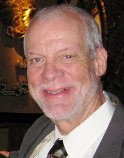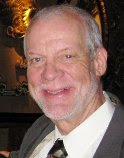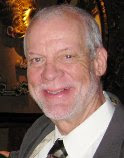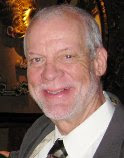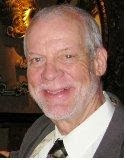As a boy, I was not afraid of heights. By the age of four, I was jumping off the roof of the garage. I could climb almost anything. My mother—never too watchful—soon learned to find me not by looking “around” but by looking “up”.
Our house was a one-story bungalow. Next door lived an elderly widow whose house towered over ours. One day, I was playing outside, between our houses, and I heard a strange and frightening cry from an upstairs window. I could see her face. She appeared to be talking to me. She hadn’t done that before. What did she want, if anything? How could I help? She appeared OK to me. I walked away. She scared me. I had never known my grandmothers.
Soon, I learned, to my horror, that she had been doing laundry and caught her hand in the rollers of her Maytag dryer. I wasn’t punished; she was the one who “got caught”. But I sure learned something about the hazards of daily living and the need to be more responsive.
Around that time—the years have grown somewhat fungible with their passage—I noticed that a very long ladder had been placed against the side of her house. It reached all the way from the ground to her roof at the exact location of her brick chimney, from which, I was certain, an excellent panorama of our entire neighborhood could be enjoyed.
The opportunity was a prime example of what in the liability law profession is known as an “attractive nuisance”—especially for a boy who loves to climb.
So, I climbed, hand-over-hand, to the rain gutter 25 feet or so above the sidewalk upon which rested the ladder. The roof was fairly steep but negotiable, so I soon found myself perched on top of her chimney thoroughly enjoying the spectacular view.
Before long, my reverie was shattered by my mother’s voice somewhat exasperatedly calling out my name in a context that suggested some kind of a response was in order. She clearly did not see me. I waited until I thought she might have the police out looking for me.
“Up here, Mom,” I said, hoping-against-hope that she would be impressed.
“Lewis, you get down here this instant!”
Mother had made similar demands in the past but I was pretty sure this time she didn’t mean to be taken literally.
Anyone who climbs at all knows that climbing down is far scarier and more risky than climbing up, if for no other reason than you’re looking at hard objects rather than clouds and the sky. Nevertheless, I managed to make it safely down to the ground without so much as a scratch. I imagined my mother rushing over to me, sweeping me up in her grateful arms and showering my cheeks with kisses, as I’m sure I had seen done in Lassie Come Home. Instead, I got a firm thumb and forefinger on either side of my right ear lobe and a brusque shepherding through our side door and into the kitchen, where my mother posed to me the type of question designed to instill shame and guilt in the heart of a 4-year-old, naïve, novitiate Christian.
“What would you do if you had a little boy who pulled a stunt like that?”
Now, I immediately recognized her query as a “trick question”, the answer to which might very well seal my fate. Rejecting rejoinders such as “give him a spanking”, “ground him”, or “send him to bed without his dinner”, I happened upon a response that might just turn a lemon into lemonade.
“I guess I would simply ask God to watch out for him”.
I never knew whether she actually did make such an appeal. I just knew that I had had a very close brush with disaster. I also learned that religion can easily be used to manipulate.
© 4 February 2013
About the Author
I came to the beautiful state of Colorado out of my native Kansas by way of Michigan, the state where I married and I came to the beautiful state of Colorado out of my native Kansas by way of Michigan, the state where I married and had two children while working as an engineer for the Ford Motor Company. I was married to a wonderful woman for 26 happy years and suddenly realized that life was passing me by. I figured that I should make a change, as our offspring were basically on their own and I wasn’t getting any younger. Luckily, a very attractive and personable man just happened to be crossing my path at that time, so the change-over was both fortuitous and smooth. Soon after, I retired and we moved to Denver, my husband’s home town. He passed away after 13 blissful years together in October of 2012. I am left to find a new path to fulfillment. One possibility is through writing. Thank goodness, the SAGE Creative Writing Group was there to light the way.
